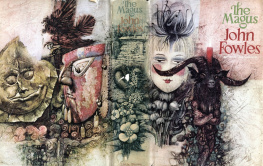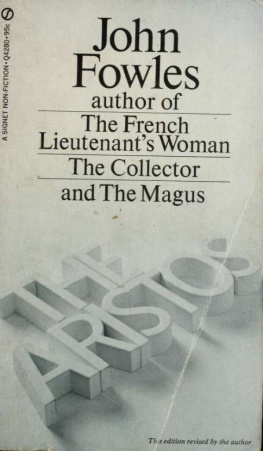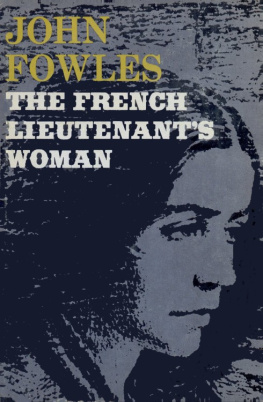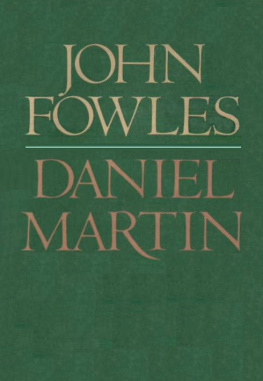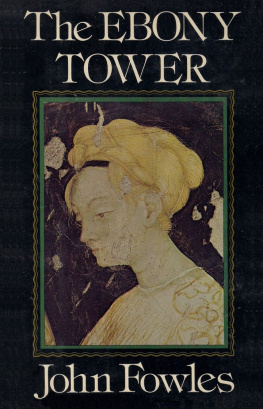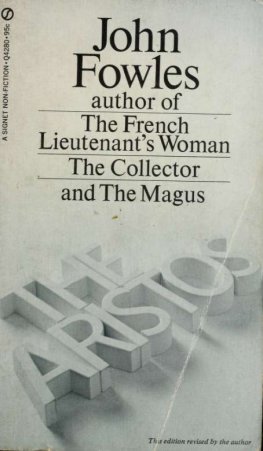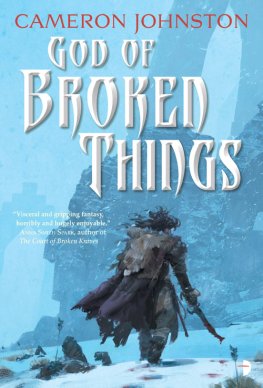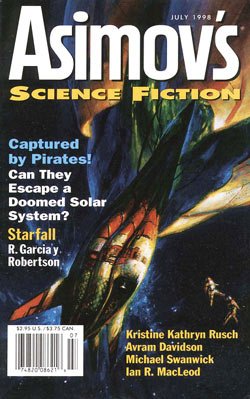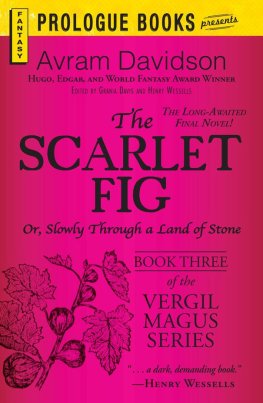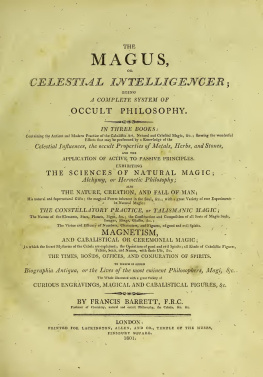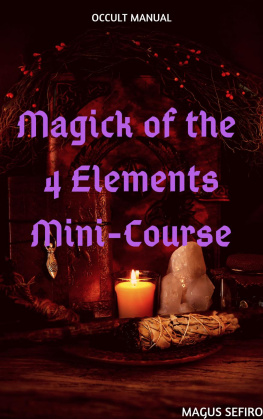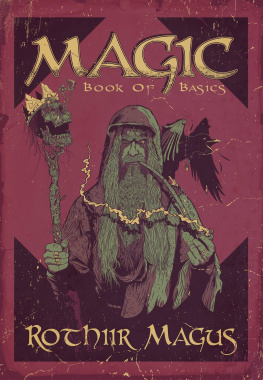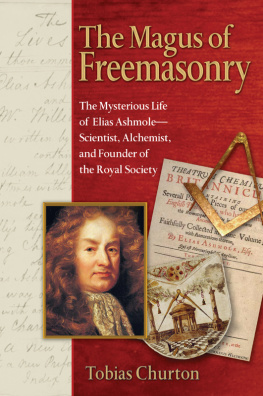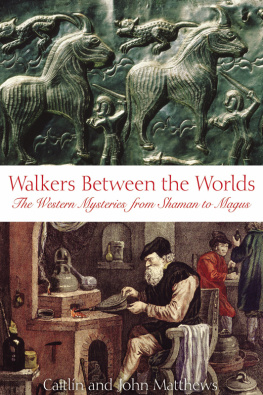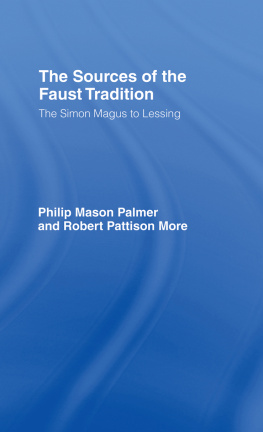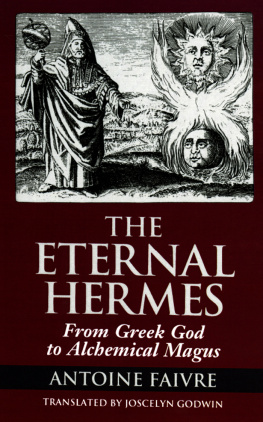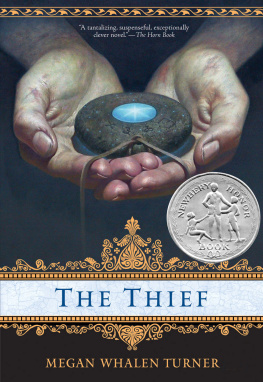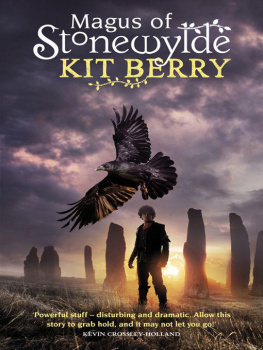LIBRARY OF CONGRESS CATALOG CARD NO. 65-21357
FIRST EDITION
TRUMPS MAJOR
Otherwise, Greater Arcana
The Magus, Magician, or Juggler, the caster of the dice and mountebank in the world of vulgar trickery. This is the colportage interpretation, and it has the same correspondence with the real symbolical meaning that the use of the Tarot in fortune-telling has with its mystic construction according to the secret science of symbolism ...On the table in front of the Magus are the symbols of the four Tarot suits, signifying the elements of natural life, which lie like counters before the adept, and he adapts them as he wills. Beneath are roses and lilies, the flos campi and lilium convallium, changed into garden flowers, to show the culture of aspiration.
ARTHUR EDWARD WAITE, The Key to the Tarot
John Fowles
The Magus
Part One
Un dbauch de profession est rarement un homme pitoyable.
De Sade, Les Infortunes de la Vertu
I was born in 1927, the only child of middle-class parents, both English, and themselves born in the grotesquely elongated shadow, which they never rose sufficiently above history to leave, of that monstrous dwarf Queen Victoria. I was sent to a public school, I wasted two years doing my national service, I went to Oxford; and there I began to discover I was not the person I wanted to be.
I had long before made the discovery that I lacked the parents and ancestors I needed. My father was, through being the right age at the right time rather than through any great professional talent, a brigadier; and my mother was the very model of a would-be major generals wife. That is, she never argued with him and always behaved as if he were listening in the next room, even when he was thousands of miles away. I saw very little of my father during the war, and in his long absences I used to build up a more or less immaculate conception of him, which he generallya bad but appropriate punshattered within the first forty-eight hours of his leave.
Like all men not really up to their jobs, he was a stickler for externals and petty quotidian things; and in lieu of an intellect he had accumulated an armory of capitalized key words like Discipline and Tradition and Responsibility. If I ever daredI seldom didto argue with him he would produce one of these totem words and cosh me with it, as no doubt in similar circumstances he coshed his subalterns. If one still refused to lie down and die, he lost, or loosed, his temper. His temper was like a violent red dog, and he always had it close to hand.
The wishful tradition is that our family came over from France after the Revocation of the Edict of Nantesnoble Huguenots remotely allied to Honor dUrf, author of the seventeenth-century bestseller LAstre. Certainlyif one excludes another equally unsubstantiated link with Tom Durfey, Charles IIs scribbling friendno other of my ancestors showed any artistic leanings whatever; generation after generation of captains, clergymen, sailors, squirelings, with only a uniform lack of distinction and a marked penchant for gambling, and losing, to characterize them. My grandfather had four sons, two of whom died in the First World War; the third took an unsavory way of paying off his atavism (gambling debts) and disappeared to America. He was never referred to as still existing by my father, a youngest brother who had all the characteristics that eldest are supposed to possess; and I have not the least idea whether he is still alive, or even whether I have unknown cousins on the other side of the Atlantic.
During my last years at school I realized that what was really wrong with my parents was that they had nothing but a blanket contempt for the sort of life I wanted to lead. I was good at English, I had poems printed pseudonymously in the school magazine, I thought D. H. Lawrence the greatest human being of the century; my parents had certainly never read Lawrence, and had probably never heard of him except in connection with Lady Chatterleys Lover. There were things, a certain emotional gentleness in my mother, an occasional euphoric jolliness in my father, I could have borne more of; but always I liked in them the things they didnt want to be liked for. By the time I was eighteen and Hitler was dead they had become mere providers, for whom I had to exhibit a token gratitude, but for whom I couldnt feel much else.
I led two lives. At school I got a small reputation as a wartime aesthete and cynic. But I had to join the regimentTradition and Sacrifice pressganged me into that. I insisted, and luckily the headmaster of my school backed me, that I wanted to go to university afterwards. I went on leading a double life in the Army, queasily playing at being Brigadier Blazer Urfes son in public, and nervously reading Penguin New Writing and poetry pamphlets in private. As soon as I could, I got myself demobilized.
I went to Oxford in 1948. In my second year at Magdalen, soon after a long vacation during which I hardly saw them, my father had to fly out to India. He took my mother with him. Their plane crashed, a high-octane pyre, in a thunderstorm some forty miles east of Karachi. After the first shock I felt an almost immediate sense of relief, of freedom. My only other close relation, my mothers brother, farmed in Rhodesia, so I now had no family to trammel what I regarded as my real self. I may have been weak on filial charity, but I was strong on the discipline in vogue.

